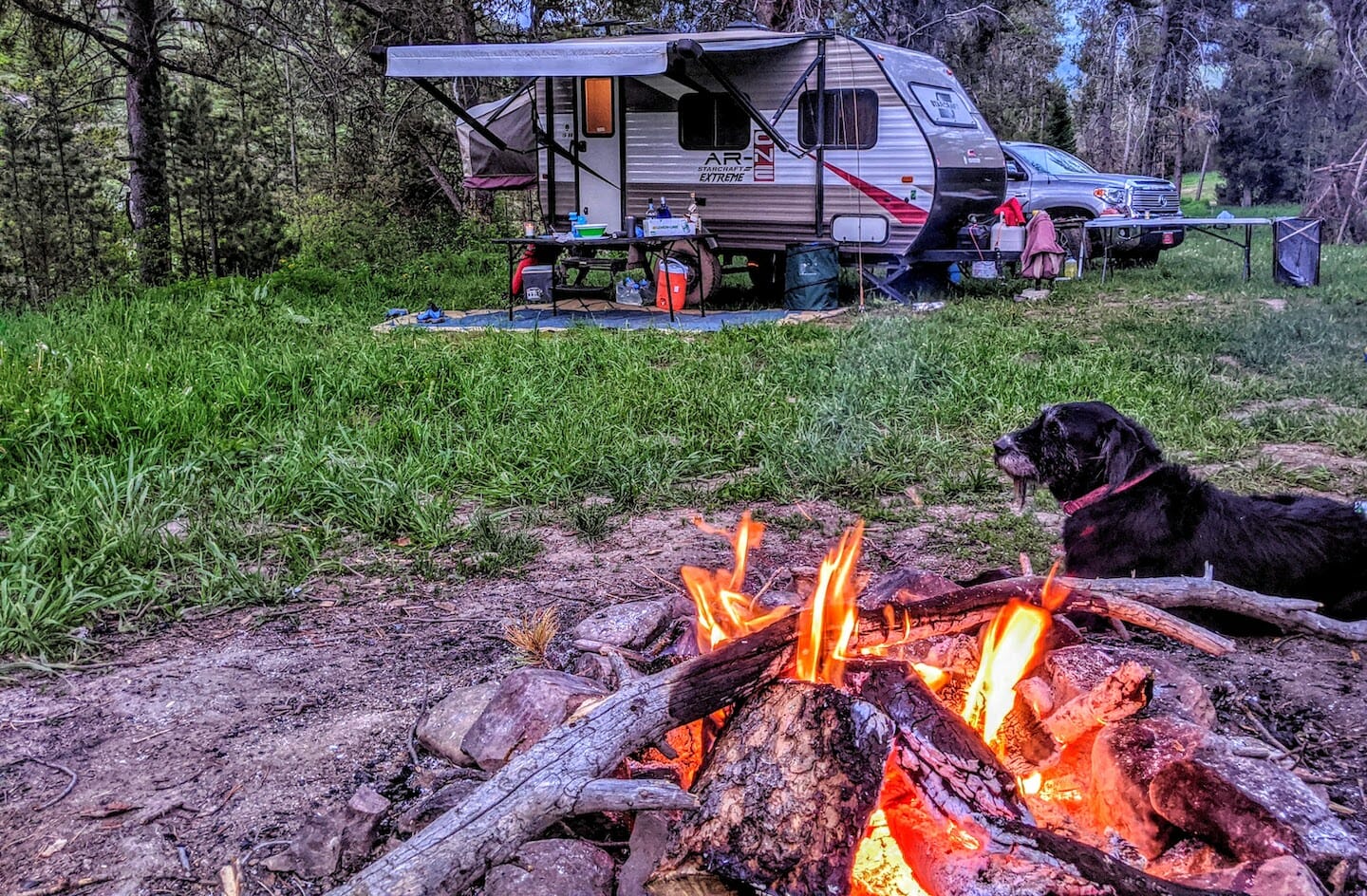With more and more people escaping outside for safe recreation, it’s vital that people understand the impacts they’re having on public lands, not the least of which is the potential for wildfires caused by unattended campfires and careless behavior in the woods.
Case in point: the Bridger-Teton National Forest in western Wyoming reported a 300 percent uptick in discovered unattended campfires as of June 2. Forest Service officials found 21 abandoned campfires, compared to just seven such discoveries a year ago. In 2019, the numbers of abandoned fires on the forest totaled just three.
Cause for more alarm? Some of the discovered fires had escaped their fire rings, creating very real danger for a wildfire that could be devastating to the surrounding national forest and to the fish and wildlife of the region.
I’m sure the causes are two-fold. First, it’s only the second week of June — it’s unusual for fire danger to be terribly acute this time of year. But after a sub-par winter, the Bridget-Teton forest is already drying out. Folks who camp — regardless of the national forest or Bureau of Land Management tract they visit — need to make sure they completely extinguish their campfires before they break camp and head home. It’s not a difficult thing to do — pour water on the coals and stir it in really well. Keep pouring and stirring until the coals are no longer too hot to touch. That’s all it takes.
“People just aren’t thinking of fire safety at this time of year. It’s like folks assume because it’s spring they don’t need to worry about putting out their campfires,” says Bridger-Teton National Foreste Public Affairs Officer Mary Cernicek. “It is early but it only takes a couple of days of warm, dry weather to dry things out.”
Second, there are more of us out there. Since the COVID-19 pandemic took hold last spring, more and more people have retreated to the outdoors for safe and healthy recreation. For instance, the Recreational Fishing and Boating Foundation reported a 6 percent increase in angler participation in 2020 — the highest increase in half a decade. That number coincides with reports of more Americans participating in outdoor pursuits ranging from camping to climbing and from cycling to boating.
Lots of folks who are new to the outdoors are trying new things, thanks largely to the pandemic and its associated impacts on society that range from screen fatigue to the need to socially distance to simple cabin fever. Unfortunately, it appears that some of the “newbies” to the outdoors aren’t as well-versed in the basics as they should be, and that includes fire-wise behavior that should be an ingrained skill-set for anyone who camps and gathers around a campfire.
Longtime participants in just about every outdoor pursuit are dealing with a noticeable increase in folks taking up new pastimes — anecdotally, I’ve seen more people in the woods with fly rods, chasing fish and, in some instances, unknowingly demonstrating bad behavior. The campfire issue on the BTNF just scratches the surface (but can have a huge impact on recreational opportunities for people across the spectrum).
As a longtime public lands user, I have certainly felt the impacts these folks are having, and I’ve seen the damage irresponsible use has caused.
Since the outbreak started last spring, I’ve witnessed more people on public lands engaging — some responsibly and some not — in pursuits ranging from off-road vehicle riding to gold panning. I’ve never in my life seen so many new RVs and campers in the woods, or brand-new side-by-side off-road vehicles driving backwoods roads. As a longtime public lands user, I have certainly felt the impacts these folks are having, and I’ve seen the damage irresponsible use has caused.
Just as in fishing, where ethics are learned over time and behavior is largely enforced by the community at large, these new participants in other outdoor pursuits need to learn the ropes. And it would be helpful to everyone else if they learned the rules before they take off into the woods and pioneer new roads and trails where none existed before; before they go “mudding” down a run-off saturated Forest Service road too early in the season and create ruts and wide spots that turn a two-track trail into boggy mess that’s impassable for the rest of us by the time it dries out.
It starts with the elementary education for everyone who builds a fire, and continues to include everyone else who is retreating to the woods for enjoyment and enrichment. When you leave a campground or a trail or a backcountry road, it ought to look like it did when you got there. Or, frankly, it ought to look better. Take some time to pick up any refuse. Don’t dig ruts in the mud with your great new four-wheeler. Don’t leave a rock cairn along the creek to prove that you’ve been there before, and don’t leave fishing line laying about. Nobody wants to see piles of rocks you’ve deposited along stream bank after you’ve searched for a few flakes of gold. Clean up after yourselves when nature calls, and don’t break every low-hanging tree branch nearby to use for firewood.
And for God’s sake, make sure your campfire is out before you head home.



